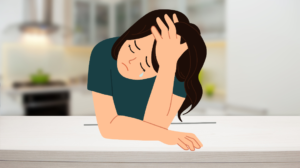What is Recovery?
Like with any physical illness, recovery from a mental illness is a long-term process. For some living with mental illness, recovery means not experiencing the symptoms of their illness anymore. For others, it is being able to maintain a job and relationships without being deterred by their symptoms.
According to SAMHSA (Substance Abuse and Mental Health Services Administration), recovery is “a process of change through which individuals improve their health and wellness, live a self-directed life, and strive to reach their full potential.”
At its core, recovery means the individual living with mental illness can lead a purposeful life alongside their illness. This is precisely Eli’s Place objective.
The Recovery Model
Until the mid-1970s, it was widely accepted that individuals living with mental illnesses — especially schizophrenia and bipolar disorder — would never “get better” and in fact, their illnesses would inevitably get worse.
Thanks to the research of mental health professionals and the patients themselves, we now know that individuals living with mental illness can “get better,” improve their experience of their illness and lead productive lives through this human-centred approach.
The Recovery Model has four main pillars that support an individual’s recovery. They include:
- Home (having a safe, secure, and stable place to live)
- Community (relationships that provide support, friendship, and hope; read more about the importance of community in recovery here)
- Health (managing the symptoms or overcoming the illness and making decisions that promote mental and physical wellbeing)
- Purpose (participating in activities and responsibilities that create a sense of purpose and contribution to society)
There are 10 guiding principles of recovery, one of which is being person-driven. This means that individuals in recovery are empowered to set goals for themselves, work towards achieving those goals, and to be independent. Part of recovery, for example, might be helping them learn the skills necessary to get a job and manage their symptoms.
Another aspect of recovery is being holistic. Traditional treatment for mental illness was based on medication, doctor intervention, and institutionalization. Holistic recovery looks at all aspects of the individual’s life to improve overall wellbeing, not just their physical health. For example, the individual may learn self-care habits, get connected to faith services, receive employment help, etc.
You can read about all 10 of the guiding principles of recovery here.
This page has resources for mental health practitioners who want to learn about the Recovery Model and begin practicing it.
How Eli’s Place Supports Recovery
Eli’s Place believes in recovery for all individuals living with mental illness. When our doors open, The Recovery Model will be at the core of our services. Our vision is for professionals and participants to work together toward the common goal of the client participant living a meaningful, resilient, and hope-fuelled life.
Click here to learn more about how Eli’s Place will support adults aged 18-35 living with serious mental illness through the Recovery Model.




